#she's Theodora
Text

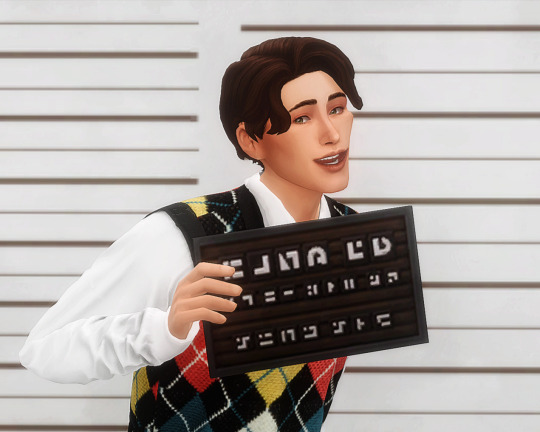

The One Where Theo and Macsen Get Arrested
After seeing @citylighten's post [x], I had to do it because this is the best way to describe the difference between Theo and Macsen. This is the embodiment of their personalities. So please enjoy this noncanon tomfoolery thanks to @sojutrait for the glorious pose [x].
#trhoredit#trhor edit#non canon compliant#trhor extras#ts4 edit#sims 4 edit#royal sims#for the lols#she's Theodora#and he's just Macsen#theo rutherford kerr#macsen rutherford kerr#non canon tomfoolery#this is pure crack#have a nice day
28 notes
·
View notes
Text
I feel like I've said this before, but I absolutely love how savage all of the Byzantines are in all of the Civ games




#I like how every variant of Theodora basically calls you ugly when she denounces you#civ 6 theodora: it appears your tailor is on strike#me playing civ in sweatpants and an old bathrobe: yeah fair#also if you denounce Theodora in 6 she just rolls her eyes and says “I've heard worse” LOL
278 notes
·
View notes
Text
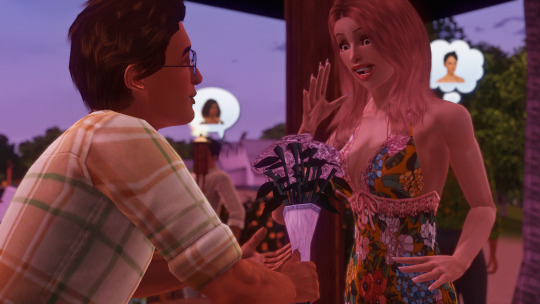
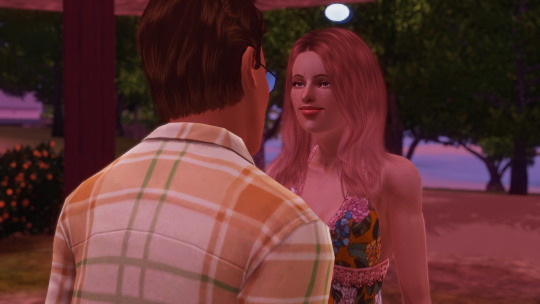
suzuki randomly gave her flowers?? he had theodora smiling like a doofus 😭 girl did you forget you have the unflirty trait. suzuki hinata i apologize i was not familiar with your game...
#ts3#the sims 3#theodora met a goofy silly man and folded so fast 🙄#“unflirty trait” shes so fake. whats all this then!
70 notes
·
View notes
Text

And VampAU Thea is here again!
Cuz I need every excuse to draw her as a cool specter
#also she has a relationship with a maid#vampire au#vamp au#theodora#oc#thea#specter#my ocs#my art#original art#victorian dress#victorian age#digital art#artists on tumblr#kmilart
55 notes
·
View notes
Text
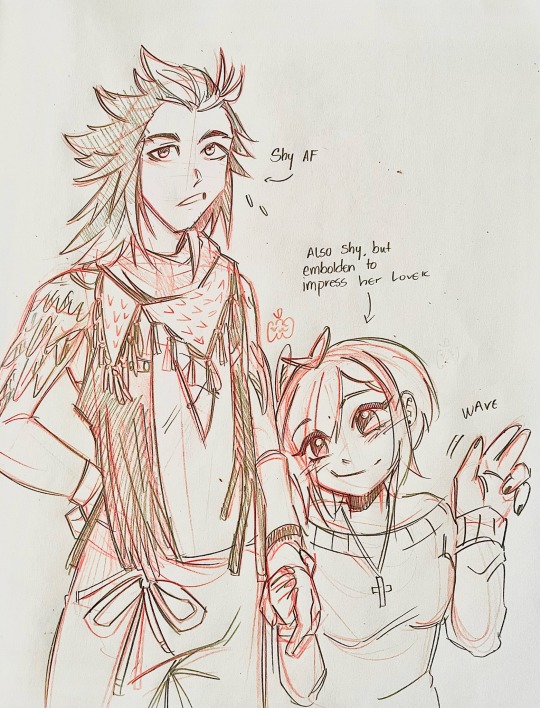
Human Great Hawk. Not much different than his monster person self though?
#pumkingart#🪶#degrees of lewdity#dol#male#human person#great hawk the terror#great Hawk#PCsona#Theodora#Dora’s wearing heels to even reach up for the photo#he’s that tall or she’s too short I cry
38 notes
·
View notes
Text
Final names! Name the OCs
(second poll in the reblog :) )
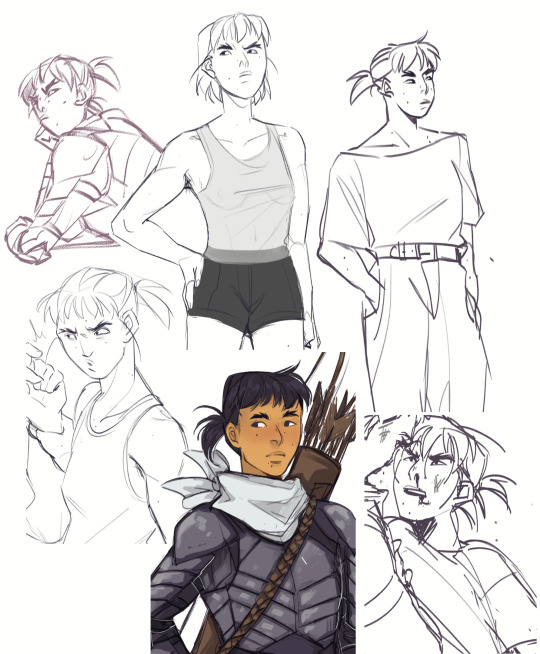
She's angry, she's mean, she has issues. But mostly she's annoyed at bear butch and most definitely, never ever, not in her biggest nightmares would ever, EVER think of or even CONSIDER kissing that bitch.
#Both Theodora and Adelaide were similarly up but I wanted to limit it to three#and between the two I prefer theo so that's the third option now#I have to say I love all the three names#polls#The Tenderness She Gives#my ocs
31 notes
·
View notes
Text
Old short story I wrote a couple of years ago and then forgot about. Remembered it the other day, gave it a bit of a brush up, and figured I'd share it. My own take on the old "Dark Snow White" retelling
Sunlight and Snowdrops

Father is sending us away tomorrow, sent for schooling at a monastery far off in the south. His new wife--The Usurper, who I will not grace with the title of queen-- tells us of the walled gardens, where pomegranates and figs grow almost year round on trees with leaves as large and tall as a man, a place where the sea still rushes up freely to meet the shore, long stretches of golden sand, forever warm to the touch.
She has talked of little else for months now, as if she and Father hope that such constant chatter will somehow soften us to the idea of our exile, make us forget the kingdom she has stolen from us, just as she has stolen his heart. And perhaps with my sisters she has somewhat succeeded . They always did take after Father, with their butter-yellow hair, and skin flushed like ripe peaches. Perhaps they were always more suited for such places. But I am my mother’s daughter, as any who look upon me can tell, and I will not be made to forget.
For how could such a flat, lurid place ever hope to compare with the beauty of my mother’s kingdom? What is a stretch of damping sea-shore to the beauty of a deep lake, forever crystallized into the finest mirror? What are walled gardens with their mad jumble of gaudy fruits to the dark towering pines, whispering to each other as the wind moves through them? What monastery could ever hope to reach heaven in the way that the mountains of the valley swell up in dark waves, to crack the egg-shell gray of the sky?
It is the blue sky of that far off place I fear most of all. What want have I for a sky of unchanging blue, suffocating in it’s immensity, with its one great burning eye beating down to peel and crack my skin in the day, and it’s thousand eyes to stare down at night? My mother’s pale sky has never once burned me, never once stared into my dreams, not with her veils of snow to protect me. Her sky is forever changing, shifting from stillness to storm on her whim. Blasting and breaking, soothing and softening, blanketing all with her beautiful covering of pure, protective white.
But my father’s new queen has poisoned its beauty for him, turning his head with her talk of salted water and coarse sand. If she wishes to retreat to such places, then I say let us be well rid of her. If my father and sisters are fools enough to follow her, to believe the lies she and her counselors and sages have spread about my mother, the rightful queen, then let them be off as well. I know the truth, I have not forgotten, I of all her daughters, have remained faithful.
There are so few of us now. So many have turned away from their true queen. But though loyalty is fragile, memory remains as firm as the ice upon the Great Lake. Despite their seeming love for the Usurper, The common people still tell my mother’s story. The Usurper thinks that because she was once one of them, a drudge plucked from obscurity by the weakness of my father’s will, that their hearts have turned to her in full.
But they can never forget my mother completely, she does not let them.
When the winds howl thick, like wolves at the door, the tale, long and wondrous and wild, is whispered between huddled crones and wide-eyed children.
A tale that takes hold of the mind and heart, as surely as the cold takes to the bones.
It begins in Winter, for indeed, how could it not?
A winter long and dark, when my grandmother, a woman wise in the old ways of the world, sat sewing at her window, looking out into the forest that spreads like an ink stain all round the castle, the snow falling heavy all around her, silencing the world as she made her request to the magic of the woods.
Three drops of her own blood she spilt to gain her heart's desire, a child for her childless king. And a child she received, a beauty such as never been seen. Hair black as the trees of the forest, lips as red as the blood she had given, and skin as white as the purest snow. A child of the winter woods, born on winter’s darkest night.
A life had been granted, and so was a life taken away. My grandmother lived long enough to bless my mother with her name, and the king, who once had so longed for a child, was now too grieved to bear the sight of his new daughter. And so my mother was given over to the wife of the castle’s woodsman, recently blessed with a child of her own, and who, most importantly, lived in a cottage on the edge of the woods, far, far away from the castle grounds, and her mourning father’s eye.
For seven years my mother grew up in the care of the woodsman’s family, as loved as if she were their own blood daughter, and the girls loved each other as sisters. They spent many days beneath the shadows of the trees, and learned much from the woods. They say even then, before she had come into her power, that the creatures and spirits of that place knew my mother as part of their blood, knew that something of her had come from something within them, and protected her for it.
It was in the winter of her fifth year that she met my father, a lad of nine, trapped within an enchanted bearskin. She and her foster sister brought him into the warmth of their cabin, saving his life, and each winter for three years after, he returned. She told me once that those winters were some of the happiest memories of her life, surrounded by those she loved in the shelter of the snows.
It was in summer that her sorrows came.
It was in summer that my mother discovered the gnome that had cursed her bear, and by his death my father was freed from his enchantment, only to then return to his own far off kingdom. It was in summer that my mother was parted from her foster family, recalled to court at last--only to find her own usurper on her father’s arm.
The people of the land adored the lady who had come to them out of the sun-drenched south, calling her their Summer Queen, praising her for the abundance that had blessed the lands since she had wed the king. And surely there was never a woman so beautiful. They say that her hair flowed like sunlight itself down her shoulders until it touched the floor, braided all over with flowers of every hew, and her eyes were as blue and bright as an August morning.
My mother said she could feel those eyes trying to melt her the moment she was brought before them.
My mother was not at court long. One day, the Summer Queen surprised her with a visit from her foster-father, and though he smiled at her, his eyes seemed grim and troubled. They traveled together down to the edge of the woods, far from the eyes of any in the castle--and there he took out the knife, carved all over with flowers, to cut out her heart.
(He claimed later, when the coup was over, and my mother restored to the throne, that he had only done so to protect his family, his own little daughter. My mother granted him the same pity he had shown her, and sent him into the woods, alone and unarmed. I do not know to this day if he fell to the animals or the cold that finally came, but by all accounts, he was never seen again.)
My mother, for her part, wandered for months alone beneath the boughs of the woods. The animals did not harm her, the woods knew its own, but she dared not venture near the edges where human souls still delt, fearful now that any might betray her to the Summer Queen. And as remarkable as she was, she was still only a child, and had never had to care for herself before, and she longed for the cheer and company of creatures like herself.
More than that, the heat of a seemingly endless summer wore at her. August passed into September and September to October and on, with nary a change to be seen. The leaves on the trees remained green, and did not fall. The rivers ran along as full and fat as ever, though there was no snow left to feed them. The sun felt like a great eye, searching for her beneath the sheltering shadows of the forest. Only at night did she find respite, and she longed for the relief of a winter that never came.
Farther and farther she wandered, seeking someplace where she might find some sign of chance, some shelter from the daylight that stretched longer and longer. At last, she found herself upon the slopes of the farthest mountain. Her feet were worn ragged from wandering, and her tongue was cracked from the heat, but with the last of her strength, she managed to stagger to the summit, and there, in a hollow tucked into the dark shadows of the peaks, so dark that even the hottest of summers could not fully touch them, she found snow.
And there her strength finally deserted her. She lay down upon the snow as contentedly as if it had been a feather bed, and might have slipped into the endless sleep beneath that cold coverlet, had it not been for the little men.
The frozen-beards, the valley people call them. Dwarfs that live in the fields of ice upon the mountains, having little to do with the valley people. They delight in the cold, they are said to be able to call up snow storms to hide their homes,and in winter they might be seen galloping along in the wake of an avalanche as happy as a child at play. But for all the ice of their beards, they are warm of heart, and they took the half-frozen child into their home as readily as if she had been one of their own.
For seven years, my mother at last knew peace. In the caves of the mountains she learned much of the songs and stories and skill of her new family. She learned the shaping of swords and the setting of gems,and the summoning of wind and fog, and was happy.
But nothing lasts forever, and at last, summer found her patch of hidden winter.
The king of a far-off land had proclaimed his intention to visit our valley kingdom, which had grown in renown-- and profit-- thanks to the summer that seemed trapped within the crown of our mountain valley. The rivers and Great Lake were never clear of vessels shipping goods out and bringing gold in. Both people and purses grew fat from the bounty, and basked in the seemingly endless sunshine.
There was one stain however, upon the glorious reign of the Summer Queen, though it was only spoken of in whispers, for it would not do to complain of such small misfortune within the wake of so many blessings.
The Draining Sickness.
It came on quickly, overnight in some cases. Those afflicted withered away, drained, pale and almost bloodless, like unwatered plants beneath the noon-day sun. No one knew how it spread, it seemed to only strike one village at a time; and oddly the most healthy and comely succumbed first, as if offended by their vitality and beauty.
Fate however, seemed inclined to some mercy. For each village that was stricken with loss soon found itself blessed with an overflowing of crops and commerce, as if Death felt some blood money was owed.
It was not only the young and lovely who were taken though. The old King, my mother’s father, was struck down on Summer’s Eve itself— along with seven young girls from each of the surrounding villages. But the grief over these deaths was short-lived, such was the glory of the days that followed, the golden sunlight drying the tears from the cheeks of the mourners even as they fell. Indeed, it seemed hard to grieve anything beneath the sun of that long, long summer. The Summer Queen, clothed in green and yellow and scarlet and blue, wore only a black ribbon around her neck for mourning, and none falted her.
It was then that the rumors came, rumors that the visiting king was not only there to see the beauty of the valley, but of its women as well. Indeed, those coming before his entourage said that he was seeking out one who was rumored to be the Fairest of them All.
The Summer Queen, shining almost to match the blazing endless sun, was more than happy to aid him in his search. And it was undoubtedly her efforts to ensure her own success in fulfilling the terms of his quest which led her to discover that my mother’s heart--which she thought she had devoured seven years ago, at the start of her endless summer --still beat it’s red,red blood within her snow white breast.
A grand celebration was proclaimed in the king’s honor, a festival of such magnificence as had never been seen outside of the old stories, and travelers came from all the surrounding lands to take part, ply their trades, and sell their wares. Up and over the mountains they came, and several passed by the cave where my mother dwelt.
Was it any wonder that my mother, still so young, having found a measure of peace in that snowy valley which soothed the burns upon her soul, and made her long to return somewhat to the world of men and look once more upon human faces, took in good faith the laces, brought by from far by the cargo boats; the comb, carved and painted so cleverly with a myriad flower; and finally, most beautiful blood-red summer apple, grown in her father’s own orchard?
When my mother woke again-- to the face of my father, returned from afar at last to find the girl who had freed him from his curse, and had now freed her in return-- she was not so naive.
My father had brought many men with him, and the people of the valley had grown slow and complacent in their bounty. When his men came with their swords, and the frozen-beards called up their icy winds, and my mother rode down upon the capitol in a sleigh made from her own glass coffin, they were not prepared to withstand the onslaught. Soon enough all had either fallen to their knees —or fallen where they stood.
The Summer Queen danced at my mother’s wedding, in shoes crafted by my mother herself, in the art taught to her by her foster-fathers. Shoes which returned upon the Summer Queen all the heat of the sun which she had stolen by her sacrifices and bloody rites.
Then my mother took up her rightful throne, and winter came at last to the valley.
My mother and father were wed in the open courtyard, as the snow fell like diamonds all around them, and all agreed they had never seen a more beautiful sight. My mother’s foster sister, who had remained loyal to her true queen, was reunited with her, and wed to my father’s brother. Children followed both of them after, and for many years, the natural order of the seasons came and went.
It was on my seventh birthday that my mother found the mirror, tucked behind a tapestry woven with fruit and flowers, in the abandoned tower of the Summer Queen.
No one knows where the Summer Queen obtained the mirror. Some have claimed it was a wedding gift from her godfather, a fallen priest who had taken supper at the Scholomance. Others that she crafted it herself, from water and moonlight, on a witch’s sabbath. But my mother told me once that the mirror was only a shard of a greater whole, and that the Summer Queen had only happened upon it, and though her own powers were great, her vain and narrow mind only able to discover the basest powers of the mirror.
But my mother-- born of blood and snow and forest, learned in the lore of the mountain folk, the perfect inversion in shape and soul of the Summer Queen-- could feel at once what was before her. She had higher aspirations than to know of mere beauty. After all, why should she trouble herself over such trivial questions?
She was, and is, the Fairest of them All.
No, my mother asked for vision and clarity, and the mirror readily supplied, showing her the darkness that lay in the hearts of men, the twisted, choking desire she had already tasted in an apple grown of blood and summer heat, and she knew what she must do.
That night, on Summer’s Eve itself, the snows began to fall.
The winters lie heavy on our land now, as heavy as summer once did. Our borders have shrunken back to what they were before the days of the Summer Queen. The rivers she once choked with cargo boats and merry-makers now flow freely beneath the protection of their own glass coffins. The flowers that once crowned her traitorous head have not been seen in many a year. The mountains are eternally capped with snow, the frost-beards no longer trapped within their narrow valley. Our kingdom, once vibrantly flushed with the blood of those taken to feed an endless summer, is now white and pure, cleansed by the endless falling snow.
My mother saved her kingdom from a blood soaked opulence, from a land made rich and fat off the hearts of their own, and yet they still turned upon her. Called her witch, demon, and worse. In the end, as the purifying snows fell heavier and heavier, The Usurper-- covered in ash from the fires she’d set to hold the snows at bay-- besieged the capitol. With her brother at her side, with an army of thred-bare shop-keepers and merchants laid low, she came up the Great Road with as much pride and assurance as if the crown sat already upon her head.
My aunt, foster-sister of my mother, and others who remained loyal, who knew their true queen for the power that she was, fought back. Indeed, my aunt and the wolves that answered to her slew The Usurper’s brother upon the very threshold. But the faithful were soon overwhelmed. The few who survived were driven into the woods, seeking the shelter that had been granted to my mother. The Usurper had the trees set ablaze, calling out that the dark powers of the forest would not be allowed to aid the followers of a witch. Her army came right up to the palace gates. And my father, my dear, foolish, fearful, traitorous father, who’s heart had been turned by The Usurper’s treacherous lies--himself unbarred the door for her.
My mother did not flee, whatever they say. She who had vowed to never be driven by anyone again, she who had bent the very elements to her will. She did not flee before The Usurper’s feeble army of ragged townsfolk and treacherous palace guards,even as they tore up her portraits, burned her books, and smashed her mirror into a thousand pieces.
No,they were not granted that victory. When she fell, she fell of her own accord, and her white gown sparkled like snow-flakes in the sun as she dived, down from the window at which her mother had once sat sewing, down, down into the blazing, waiting embrace of the woods that had heard her mother’s prayer.
When the fires at last burned themselves out, they found my mother’s body, ash covered, but untouched by the flames, as if even they could not bear to besmirch her beauty. She was placed once more in the glass coffin that bore her name, and it sat in state for three days in the royal chapel. She was, after all, a king’s daughter, and wife of another. On the third day, it was gone. Some claim she was properly buried, far beneath the ground, with a hawthorn branch in her heart. Others say that the rebels took the coffin, and burned it till the glass was melted down into a lump as black as her hair had been. The faithful say that the frost-beards came in the dark of the night, and reclaimed their daughter, carrying the coffin up once more to the high valley where my father once found her, to await the day when she will awaken again.
If she has not so already.
For though my mother’s crown sits on The Usurper’s head, and her daughters are to be sent to the far corners of the earth, in hopes the heat of the sun and the scent of the flowers will drive her from their hearts, the winter still lays heavy upon the land, and the wind has not ceased to blow since the day that she fell.
Father is sending us away tomorrow, and I do not think he shall be long in following. So many have left already. He longs for the shores of his youth, where the spring and summer follows after the winter. My uncle, his brother, has already returned there, with many of his children. The common folk are leaving as regularly as they can clear the mountain passes, which is not easy in these times. The birds and gentler animals left years ago. Soon, it will be only the wolves that prowl the dark woods, edging closer and closer into the towns as more and more people abandon my mother’s frozen kingdom. They say that the spectre of my aunt can be seen running with the wolves sometimes, when the moon is obscured by clouds, red cloak trailing behind her like blood on the snow.
They can send me away, but I shall find my way back. A thousand’s flowers scents could not make me forget the smell of the pines, a thousand bird’s songs could not drown out the howl of the wind. The bluest of skies cannot burn away the purest of snows. Not all the mirror’s pieces were ground to powder. I managed to save one, one single shard reclaimed in the chaos that shattered my childhood. I have kept it close, reworked and polished it, set it into a clasp on a chain that rests even now against my heart, hidden beneath my dress so that The Usurper cannot see. Already I have learned much, not as much as my mother, I do not claim that, but enough
And when the time is right, I know it shall lead me home. Past the guards that will be placed at the door, past the gates that will be barred, over the rivers and hills and far away, back to my mother’s mountain. And there I know I shall find her again, hair as black as night, lips as red as blood, skin as white as snow; riding in her sleigh of glass thru the eternal winter air to meet me.
#my writing#snow white#snow white retelling#got inspired by a few different short stories#Tanith Lee's Red as Blood#Neil Gaiman's Snow Glass Apples#and Theodora Goss' England Under the White Witch#plus just my own love of faitytales and finding ways to mash them together#also wanted to do a dark Snow White story where she doesn't just start out as an evil vampiry child#but becomes corrupted by her fear and trauma#snow white and the seven dwarfs#snow white and rose red#little red riding hood#hansel and gretel#(the usurper is meant to be gretel as in some varients she grows up to marry a king#and who better to kill a witch?)#honestly would love to come back and explore some of the other characters in this story like her and red riding hood)#the snow queen#(really i think i just wanted to tie all the snow white/snow stories together x)#short stories#short story#walter crane#for the banner art#dwarves#witches#vampires#kinda with the witch queen
62 notes
·
View notes
Text
open post-event starter @exitiumstarters
Theodora had horrible nightmares after returning home with Blossom. The two managed to escape, but only because she used her banshee powers to break the bulletproof glass. Turns out her Death Wail did come in handy once in awhile. It had been so easy to channel, people were being ripped apart so casually the whole night.
Returning home with her roommate, was a daunting task after using so much power. If it hadn't been for the fairy, Theo wasn't sure if she would've made it home. The whole night, all she could think about was Laine and the way the woman warned her earlier in the night. It felt as if her soul had been placed under a heavy weight, knowing that the hunter was capable of such things. Funny thing was, she didn't know the half of it.
She grabbed her second latte from a local coffee shop. Theo wore sunglasses as she made her way out of the shop and back onto her route. The sun was not only blinding, but it added to her growing headache. As usual, the banshee wasn't paying attention when she walked right in someone's path. Pulling away just in time before a collision.
"Sorry!" She said softly, trying to collect herself before looking up at who she'd run into this time.

#theodora berman; open starter#tw murder#tw violence#/she's so tired everyone so dang tired#exitium.starter#buried a hatchet it’s coming up lavender; theodora berman
31 notes
·
View notes
Note
do you have any thoughts about the way thea was handled? ever since nora has been more active on twt (and mentioned the hate thea gets) people have been sort of insistent about Always Having Liked Her Actually and it irks me a lot, because imo people SHOULD be upset at the fact that kevin (who has been abused all his life and has trauma regarding the nest) has a gf who's from that same environment but 1. doesn't seem all that concerned about getting better / helping kevin get better 2. shouts at him in the only scene they're in together 3. isn't even described as a particularly good presence in the extra content explaining their past 4. this is just a horrible cherry on top but she's 5 years older and they met when he was 14 :/// like if anything i think this has a lot to do with nora not having been kind to kevin (which she also recently admitted to) like damn can he get one thing in life that's just good for him. one safe haven. jesus
short answer: i think thea as a character has been done the worst by nora sakavic, and the lack of care she was shown is in line with how all for the game treats its other characters of color.
long answer: most of my thoughts about how thea was handled are less about thea the character itself and more about her throwaway appearance and the overall lack of interest the author had when writing her. thea's a widely hated character for many reasons, not all of them valid, and a big one is that she was shoved into the narrative at one of the very last few chapters and paired up with one of the most important characters with very little thought or effort. we don't get even a hint of her existance before her appearance, and her one scene does not gather her sympathy because what we know of her is that she's an unrepentant raven (arguably the series' most evident villains) and what we see of her is a moment of great anger, that, even if ignorant, mimics the hostility most of the other ravens had towards kevin/the foxes during the trilogy
this is all to say: i don't like the way thea was written, and i think, especially, that it was a bad optic to write a black woman whose only scene is her being hostile towards her love interest. i need you to know that i'm not saying thea was not right to be angry, or that thea should've flown in and nursed kevin's mental health as soon as she could — both because it's out of character and because it's ridiculous —, but i am saying that she was not afforded almost anything as a character, in both terms of humanity and screentime. this is nothing new with how aftg treats its characters of color, and it is very telling that the characters who get the most flack (namely nicky and thea and riko) are the core of the non-white cast. thea and riko are not afforded complexity; nicky is a constantly flamboyant brown man whose only purpose is to wrangle his cousins and deliver friendship-related one liners to neil. this is why nora sakavic's refusal to comment on them grates on me, and why the new wave of adoration for the series with no nuance suffocates all of the real criticism done by fans of color in the last ten years.
and here's a personal answer: thea's future breaks my heart just as much as kevin's does, because she is also a victim of cultist mentality, and she never breaks out of it. i have no doubts in my heart that the nest was cruel to her, and her unflinching loyalty to the ravens until the end saddens me because it is a terrible existence when all is said and done. thea will not play exy forever, and by the time she has to retire, she will be just as miserable as kevin was. i don't know if she'll ever acknowledge how awful the ravens were either to her or to kevin — i don't know if she'll *want* to, because it is hard to do all that work, and it will leave her deeply scarred to realize most of it was not necessary to her sucess —, but i hope she does, and i hope that on that day, she will be able to decide for herself where to go from there.
#re: kevthea i dont think their relationship would be terrible but it would not stand for long#and i think kevin is as much of a comfortable choice for her as she is for him#but that is about as personal of an opinion as when i think kevallison wouldn't work well together#what i wish for thea is a better writer and a better fandom and a better series#but as i cannot change this i will tell u that thinking about how badly she was handled upsets me#and i hope (pray) that she finds a better man than kevin. who is probably not so obsessed with exy. and who could help her deal with#what kevin could not help her with#welcome to the world of the living theodora muldani!#asks#thea#kevin#kevthea
28 notes
·
View notes
Text
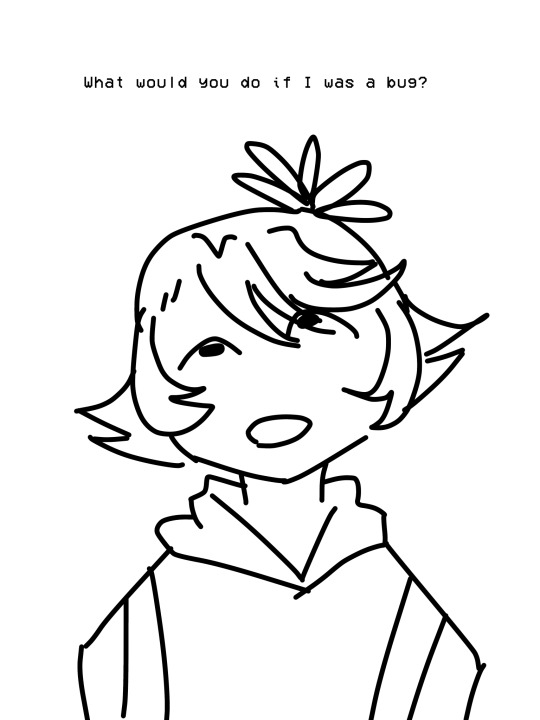
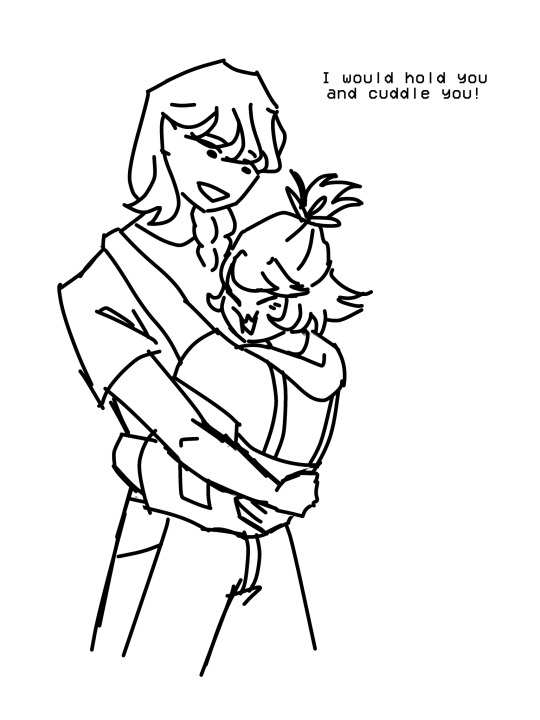
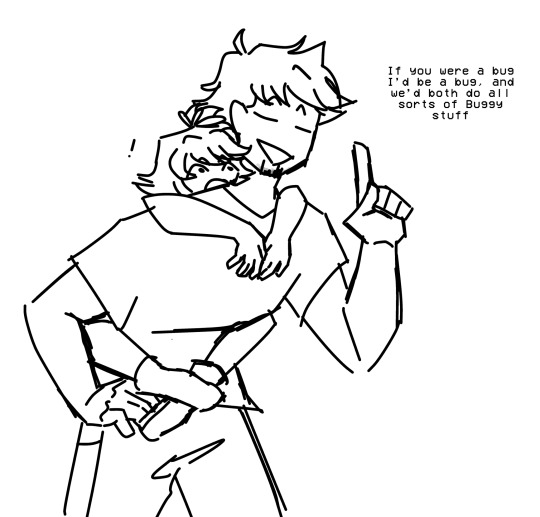
The Sillyzar family

#‘how can Theodora hold Zora like that when she’s not as bulky as Joseph?’#WITH THE POWER OF A MOTHER’S LOVE AND FIVE MILLION SUNS 💥💥💥#american pie fic#epithet erased#zora salazar#Theodora Salazar#Joseph Salazar
25 notes
·
View notes
Text
Theodora in IG:


#red rising#iron gold#Theodora#electra au barca#justice 4 Electra she was kidnapped too you guys#there are a couple other lines that focus very heavily on pax in the wake of the kidnapping and it’s like hey. they kidnapped two kids#so as annoying as victra and sevros behavior is at the end of ig and beginning of da…I kind of get it?#victra says ‘I protect my own first and foremost because no one else ever does’ and you can kind of see the evidence here#not to say the others didn’t care about Electra being kidnapped because they did. but I wonder if it had just been her#if the uproar would have been so big
35 notes
·
View notes
Text
So I got the ending in Theodora where I saved my soul but my memories were erased I didn't cry I swear and she saw Lawrence's ghost or wtvr and made a vow to find him babe he's dead but then I remembered that Theodora had a twin brother so if his lineage continued to present day (2019), is there a chance Theodora could have met her great great great grandnephews/grandnieces? Even if on accident?
Just imagine: she's been walking around a park, and she sees someone who is actually distantly related to her. A small part of her feels drawn to this person without knowing why. At first, she might assume that they were people in her past before she had amnesia, but she talks to them, and they say they've never met her.
Then, for the rest of her life, she hangs onto this interaction, absolutely confused, or at least, until she bumps into someone (a S3 LI or "John") who recognizes her and-
#to be fair she's a journalist so she could probably research herself and follow her trail of breadcrumbs but i thought this was interesting#does that make sense 😭 i lowkey love this ending the angst is amazing#mir's musings 💬#romance club#rc theodora#theodora avery#lawrence barkley#rc john roberts#lawrence x theodora
22 notes
·
View notes
Text
you can have some emotional support horror lesbians. as a treat
#stranger things#fear street#the haunting of hill house#the haunting of bly manor#horror lesbians#robin buckley#nancy wheeler#lesbian robin and bi nancy? just sayingggg#but i love robin by herself anyway <3 she’s my emotional support horror lesbian#that’s a lie my emotional support horror lesbian is theo crain#theodora crain#thohh#thobm#dani x jamie#wren speaks#i haven’t actually seen fear street but everyone talks abt it as horror and wlw so. i’m tagging that too
418 notes
·
View notes
Text

@suburbanbeatnik OK SO:
As far as the “mixing up different historical eras” problem goes, this actually happens in a lot of different novels. Theodora by Samuel Edwards is the most blatant example I can think of at the moment—near the end of the book, a horde of Huns, inexplicably led by Khosrow, starts marching on Constantinople while Justinian is in his plague coma, and Theodora sells the crown jewels (I don’t believe the narrative specifies the buyer) to fund Belisarius and his troops, who are the city’s last defense. Khosrow is similar to Mehmed II, Theodora takes on the role of Anna of Savoy, and the overall political situation is implied to be very bad for Byzantium, with Constantinople on the brink of total failure and most of the empire's territory gone. (Like, there’s discussion of Justinian and Theodora meeting the invaders at the gates so they can die together, because they think the whole empire is collapsing.) The story does end with the Byzantines winning (using Greek fire, another anachronism), and Theodora gets her jewels back (I do not remember how), but yeah, the author completely blended two very different periods together. Different variants of this exact plot appear in different novels—a *lot* of books treat the 540s as politically similar to the 1200s or 1300s, and a *lot* of books have Theodora sell her crown for some reason or another, usually to fund the defense of the City or one of Justinian’s schemes. (One book–maybe one of the ones by Marié Heese? I can’t think of the title, sorry)—had her sell her jewels to fund the building of the Hagia Sophia. (She gets them back in that book, too—I think Narses literally just discovers an enormous stockpile of gold somewhere, and that fixes the financial problems.) And a lot of different books put Belisarius in a Heraclius or Basil-like role, although I’m less well-versed in Belisarius books than I am in Theodora books. (The Sarantine Mosaic by Guy Gavriel Kay definitely did this—the character of Leontes is pretty much Heraclius and Belisarius combined, while Valerius and Aliana are straightforward Justinian and Theodora equivalents, except for the fact Aliana is the equivalent of an iconodule rather than a Monophysite. But that gets a pass, imo, because it’s not pretending to be totally accurate.)
Religious inaccuracies and mixups are also really common overall, especially in older books. One Victorian-era book called Blue and Green, or the Gift of God: A Novel of Old Constantinople was very bad with this, presumably because the author was a British Protestant who made no secret of his disdain for the “pagan heathenism” of the Byzantine Empire. (His descriptions of religious ceremonies are very funny, because he describes them as, like, Christian ceremonies, if Christian ceremonies had strippers and drugs. The inciting incident of Theodora’s spiral into prostitution is her doing an erotic dance at a respectable, aristocratic wedding—not a bachelor party, an actual wedding—and this is presented as normal.) Really, you can probably just check out any Byzantine book from before, say, the 1980s on archive.org, and there’ll be weird religious anachronisms all over the place. Lots of authors bring iconoclasm or the East-West Schism (the one that happened in 1054) into the sixth century, I guess because those are more recognizable and dramatic than the Monophysite thing. Authors tend to put Justinian and Theodora on the opposite sides of these conflicts, and Theodora is usually on whatever side they consider “wrong,” which differs significantly from book to book depending on the author’s religious leanings.
Regarding the Theodora/Macedonia thing—Ross Laidlaw’s Justinian: The Sleepless One definitely did this (there were a couple of cringe sex scenes in this book—he always referred to Macedonia as “the other one,” I guess to avoid saying her name a bunch of times? It’d be like “Theodora felt the other one’s lips...” and so on. It sounded so strange.) Macedonia was Theodora’s main love interest—Theodora does marry Justinian, and she likes him well enough as a person, but she’s pretty explicitly gay and uninterested in men, and she has an affair with Macedonia until Macedonia dies in an earthquake. I believe Stella Duffy’s Actress, Empress, Whore duology also had Theodora and Macedonia hook up, but Duffy’s sex scenes were less fetishistic and cringeworthy, and their relationship didn’t last for the entirety of the novel. Theodora having sex (or sexually charged interactions) with Antonina, Macedonia and her other female friends is reasonably common in shitty Theodora novels in general, but it’s never, like, a plot point. It’s just an excuse for the author to write about attractive young women getting it on in the Roman baths, or whatever other fetish-y nonsense piques his interest.
These points aren’t even the weirdest things about most of these books, though. I should just sit down one day and do a full post about all of the absurd things that happen in Justinian and Theodora stories, because shit gets real weird in most of them. Messy historical anachronisms and fetish-y male-gaze lesbian sex scenes are nowhere near the strangest aspects of some of these books—remind me, one day, to talk about all of the Penis Diseases these authors invent to explain away Justinian and Theodora's infertility.
#penis disease segments#sexy Amalasuintha murder scenes#cringe Narses/Belisarius/Justinian/Theodora/Antonina love dodecahedrons#Evil Comito Bullshit#some of them give Theodora a fictional evil stepmother and stepsisters so she can be Cinderella#it's wild out there
23 notes
·
View notes
Text
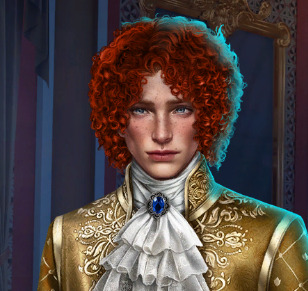
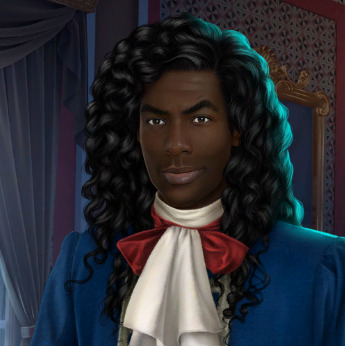
i know i'm gonna get judged for saying this but i kinda wanted them as flings
#they're both hot i don't care#they shouldve done like madame rosetta in theodora or foxy in psi where like if you're single certain flings become available to you#hortense too like shes so gorgeous#romance club#rc#vying for versailles#lou de rohan chabot#rc lou#jules mancini#rc jules#maybe jules i can get since i'm pretty sure he's gay but lou literally says he'd love both renee and montespan like cmon now
13 notes
·
View notes
Text
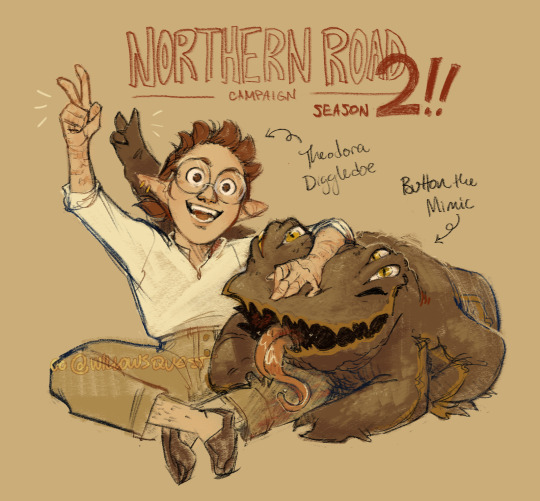
Our Tuesday game wrapped on the "season 1" of our campaign titled Northern Road a few months ago, but next month or so we'll be starting SEASON 2!! I'm so excited to play as my weirdo halfling again ❤️💕❤️💕
#I'll post her other art here sometime soon lol#Theodora Diggledoe#digital art#ttrpg#dnd oc#she's friendly she's weird she's gradually succumbing to the innate body horror of being bonded to a shapeshifting monstrosity#also dw those are just bite scars from A Certain Somebody
22 notes
·
View notes